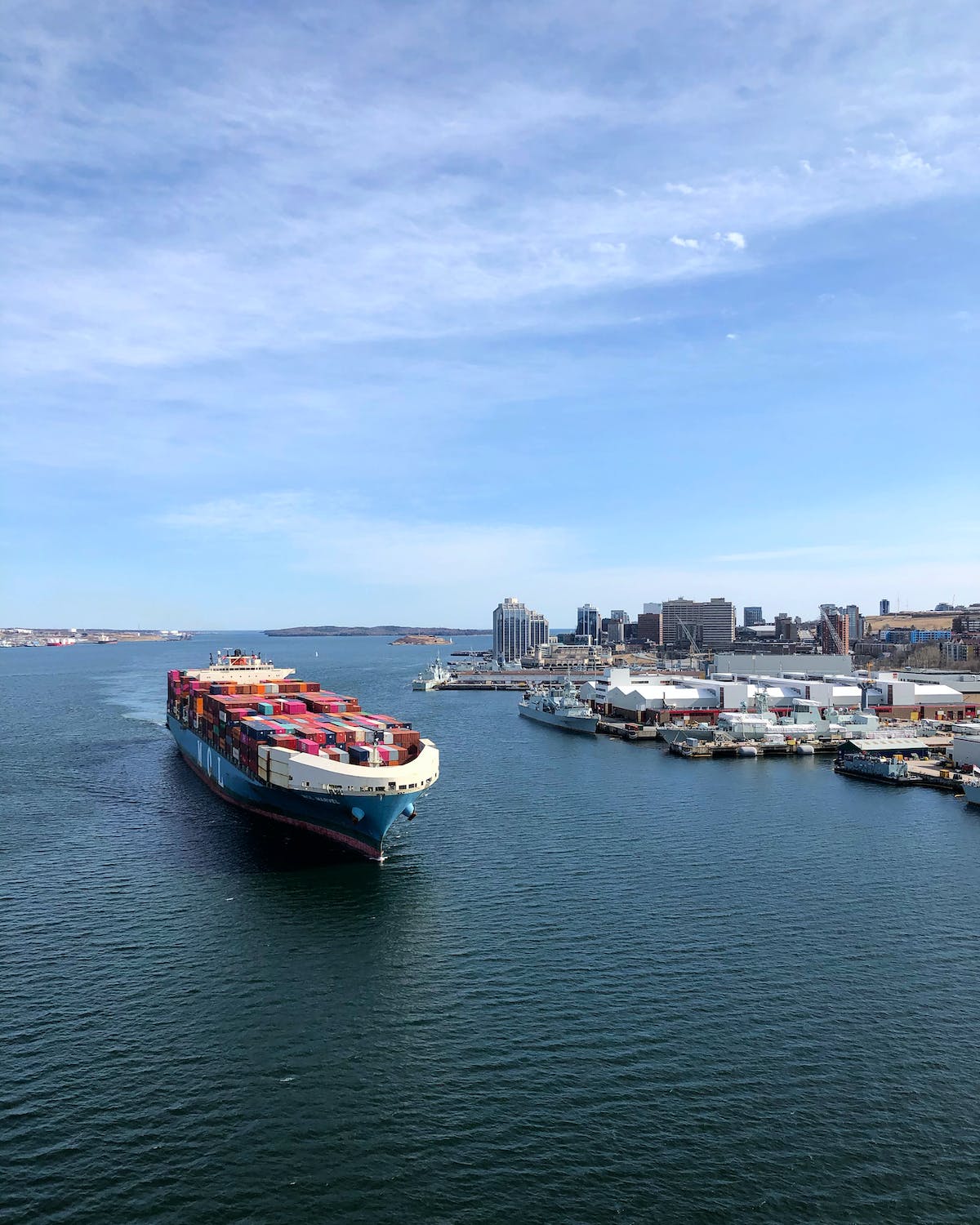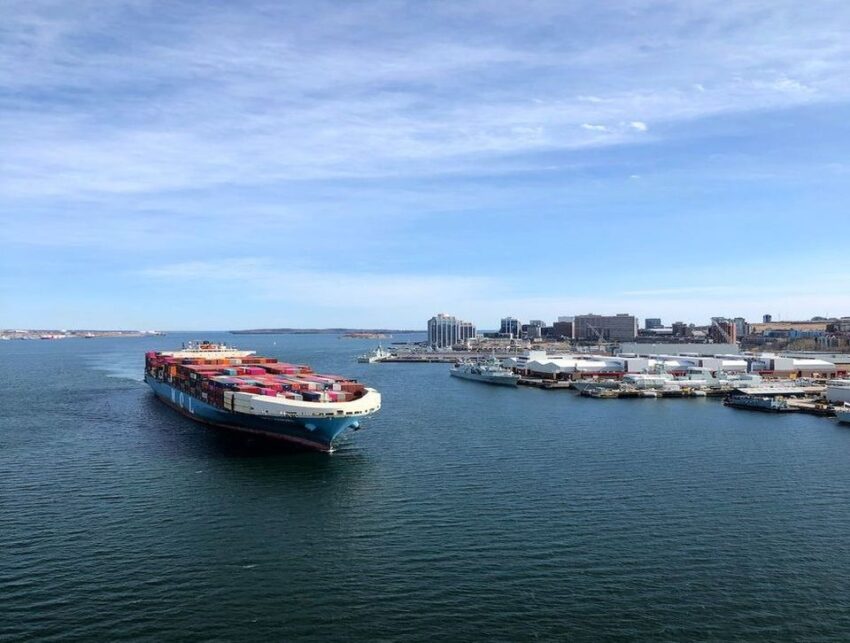The decreasing water level in the rivers across Europe, because of the ongoing drought triggered by climate change is having far-reaching consequences on the shipping industry. The diminishing water level all over Europe especially in Germany is threatening the riverine transport system. It is also impacting the supply chain of a variety of industries across the country. The focus of this week’s article is the ongoing drought in Germany and its impact on the logistics industry.

The drought in Germany and how it is impacting the shipping industry
The water level of the river Rhine
The Rhine which flows from the Swiss Alps to the North Sea traversing the industrial heartland of Germany is an important route for moving a variety of cargoes like cereals, chemicals, coal, etc. However, the current drought in Europe has impacted the navigability of this river which is a major source of concern for the transportation and logistics sector. Recently, at Kaub, close to Frankfurt- a key point of transit- the level of water fell below 40 cm. In this situation, it is not ideal for the barges to sail the river.
The water level on the Rhine river in Germany is steadily diminishing because of the ongoing drought. This is having an immediate impact on the riverine shipping sector as many ships are no longer able to sail the Rhine. Europe is currently recording the hottest summer temperatures in several cities and the rainfall deficit has further worsened the situation. Although the water level of the Rhine fluctuates from time to time, never before had it reached this critically low depth.
The impact on the logistics industry
The remarkably low water level on the Rhine- the commercial artery of Germany is leading to shipping delays and high freight rates. Moreover, many vessels can no longer travel down the river with full cargo loads. Although the Rhine is still being used for moving cargo, many shipping companies are calling for dredging of the river. According to a spokesperson from the transportation ministry of Germany, the level of water could diminish further if the drought situation continues. However, he couldn’t say for certain if the ships will still be able to ply the river.
Although the vessels are still plying the river for moving shipment, they are at times required to sail with much less cargo. Presently, cargo ships are sailing the Rhine three-quarters empty. As a result, the manufacturers are having to pay hefty amounts on freight transportation since the cargo that can be moved in one vessel is now moving in four vessels. Many sea freight forwarders are discontinuing their barge operations in the Upper and Middle Rhine because of the dwindling water level. Furthermore, the overland transportation of cargo is not proving to be the best alternative because of the limited trucking capacity.
For example, a ship can generally move around 1,000 tonnes of grains. It takes around 40 trucks to move this same volume of cargo. Therefore, the overland movement of cargo is also economically disadvantageous. Nevertheless, the route is still operational and will continue to be open for shipping throughout this summer. A bit of rainfall could also alleviate the crisis.
Importance of the Rhine for the German economy
According to experts, the disruption of the shipping industry because of the Rhine water level might even impact the economic growth of the country. This river is absolutely vital for a large number of German industries. Back in 2018 when transportation via the Rhine was disrupted due to low water levels, industrial production in Germany fell by 1.5%. Moreover, a vast quantity of energy commodities like coal passes through this river. This could lead to additional problems as river ships are the most important mode of transportation for items like coal. German multinationals like BASF and ThyssenKrupp depend on transportation via Rhine for their fuel supply. In addition, the river ships also move coal to the power plants that working to counter Russia’s choking of the pipeline for the supply of natural gas.
The way forward
Volker Wissing, the Transport Minister of Germany has expressed his plans of dredging the river. The strategy of the authorities is to take steps that would divert the traffic from road/rail to the waterways. This will be advantageous to the manufacturing sector as moving freight by rail/road is far more costly. Presently, the focus is on eliminating the bottlenecks along certain points on the Rhine. Nevertheless, a project of this scale will take years to accomplish and would also entail enormous expenses. According to Wissing, this project would approximately cost 180 million euros since they will also take the ecological factors into consideration while undertaking this project. The deepening of the Rhine once completed would allow barges to carry an extra 200 tonnes of cargo than they are presently moving. This volume would amount to 10-15 truckloads.
Lessons for the transportation and logistics industry
The long-term financial consequence of global warming on the logistics industry will be disastrous. It goes without saying that small and mid-sized companies will suffer more than the multinationals. This is because climate change will more severely impact the small freight forwarding companies. Some of the immediate consequences of climate change include hike in fuel prices, higher freight rates, unavailability of space, and delays. While larger companies are somewhat prepared to deal with these challenges, the SMBs will find themselves in a tough spot. This is why independent freight forwarders need to join forces and implement environmentally conscious strategies that will help them survive in the long run.
Now that climate change has transformed from a threat to hardcore reality, it’s time for the shipping industry to be more mindful of the environmental impact of its activities. While the IMO has agreed to reduce its carbon emission by half by 2050, the small and mid-sized freight companies should also start playing a more proactive role. Independent freight forwarders for example can start using clean delivery solutions like electric vehicles and bicycles for first and last-mile delivery. Moreover, endeavours like planting trees once a month and encouraging climate-conscious supply chain partners can help this industry to play its part against the climate crisis. Additionally, independent freight forwarders should keep in mind that their customers are also becoming more climate-conscious by the day. Therefore, it will soon become imperative to embrace environmentally friendly practices, or else they will run the risk of losing out new customers.


